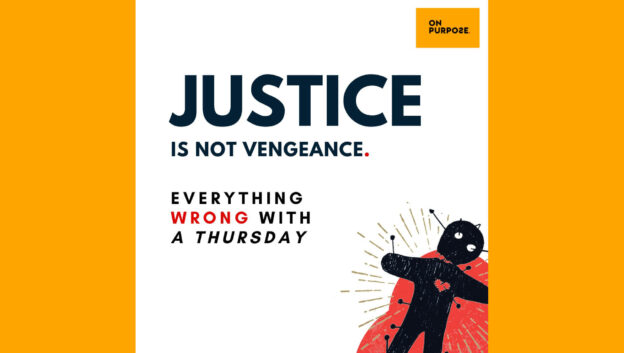To those who don’t work intimately with criminal justice, the recent Disney+ Hotstar release A Thursday, may have seemed like a film with an excellent social message. But the reality is that this could not be further from the truth. (SPOILERS AND TRIGGER WARNING FOR SEXUAL ASSAULT) Despite its automatic appeal for those who equate justice with vengeance, a death penalty for rapists is actually a terrible idea – as anyone who knows anything about the ground realities of criminal justice in India will tell you. Advocating the death penalty for rapists is the height of irresponsibility and the filmmakers are guilty of pandering to our basest bloodletting tendencies.
There is no doubt that all efforts should be made to deal with the scourge of rape but there is little evidence to suggest that the death penalty is the solution. But there is ample evidence that a death penalty for rapists will actually reduce the chance for rape victims to get justice and can, in fact, lead to gross cases of injustice. Increasing the stringency of criminal laws also offers the politicians an easy solution to placate people angry with yet another high-profile rape and lets them avoid the more complicated task of meaningful criminal justice reforms.
A Thursday is so certain in the moral righteousness of a death penalty for rapists that it is depicted as a sufficiently just cause for the hero, Naina Jaiswal, to hold innocent children hostage and traumatise their parents with the possibility of their death. The first problem with this advocacy is that it fails to adhere to the internal logic of the film’s own narrative. It is eventually shown that Naina has been set down this vigilante path because the police officers who handled her rape case, Javed Khan and Cathy Alvarez, ignored her rapists and chose to instead focus on pursuing a high-profile case with which they could make their careers. While this may be a legitimate problem, there is no reason why a death penalty will motivate police
officers any differently. Cathy Alvarez, Javed Khan and ambitious police officers like them will still be pulled by the lure of fame and promotions that potentially lie at the end of a high-profile case.
The Lack of a Convincing Argument
The probable riposte to this argument will be that the stringency of a death penalty will deter would-be-rapists from sexual assault. While this may seem intuitively true, there is no conclusive evidence from multiple studies across the globe that capital punishment is an effective deterrent of crime. In fact, making the sentence for rape equal to or worse than murder may have counterproductive effects as it incentivises rapists to murder their victims and destroy the evidence.
On the other hand, the considerable damage that death penalties can cause is well documented. The most obvious are wrongful convictions, which was the subject of a recent episode of Last Week Tonight with John Oliver. The irreversibility of capital punishment means that there is always a possibility of ending innocent lives. No justice system is ever perfect and there is always the possibility that new technologies like DNA analysis emerge to exonerate convicts on death row.
This is especially true in India, where the breakdowns of criminal justice are in plain view. The imperfections of the Indian police system are common knowledge. Indian police forces are under-equipped, under-staffed and over-worked, and are easily subject to political control. Investigative capacity is still extremely low and is rife with flaws. The backlog for forensic tests is so long that speedy justice remains a false promise. – Indian forensic labs process less than 50,000 DNA samples annually despite having 500,000 incidences of crime a year. This creates a host of perverse incentives for police to refuse to file FIRs, pressure victims to drop cases or, worst of all, resort to custodial torture to extract ‘confessions’.
These failures of justice extend to Indian courts as well. There is no need to rehash the problems of a justice system trying to resolve backlog and pendency while struggling to recruit judges. The problem statement that cases tend to languish in court needs no reiteration and is better covered by others. Rape victims also have specific issues with Indian courts and the justice system at large – the entire process is extremely retraumatising with little sensitivity to the mental health of victims. They are often ridiculed, humiliated and slandered, and are often forced to physically confront their rapists. This is enough to dissuade victims from pursuing justice, but courts provide further reason by regularly making extremely regressive, demeaning remarks, and requesting rapists to marry their victims.
A Misleading Conception of Rape
However, the biggest flaw of the film is its depiction of rape, which is based on a host of misconceptions and biases. The film cites only one number to justify the death penalty – that according to official statistics, a woman is raped every 16 minutes in India. Here is another number in response – according to the National Crimes Records Bureau, 93.4% of rape cases involved an accused who was known to the victim. This is why most groups and organisations working with rape victims will stringently argue against the death penalty. Victims will be more reluctant to file reports fearing the social consequences of sending their rapists to their death.
The filmmakers were undoubtedly inspired by Nirbhaya in creating the identities of the rapists and ignored the evidence about a more accurate and likely depiction of rape. This takes the film into extremely problematic territory of depicting rapists as lower caste/class. One shot sits on the face of Rakesh Kumar, one of the rapists, as he leers at Naina while lighting a beedi with a matchstick. This is contrasted with the sophisticated metallic cigarette case that the police officer, Javed Khan, is shown to repeatedly use throughout the film. What is especially problematic is that these kinds of biases are unsurprisingly found in the criminal justice system as well – 76% of convicts on death row are SC/ST or are from religious minorities and economically vulnerable communities.
The final problem with the film is how it re-enforces the misleading and patriarchal notion that the worst thing about rape is how it impinges on a woman’s honour. Naina’s first explanation of what rape feels like is to discuss the impact on her parents, with the implication that it caused the premature death of her father. Even at the end of the film, Prime Minister Maya Rajguru asks Members of Parliament to think of women’s self-respect and requests the men to think of their mothers, wives and daughters when making the case for amending sentencing guidelines for rape. God forbid anyone raise the point that the worst thing about rape is the invasion of bodily autonomy or that the only reason to punish rapists should be to protect the human rights of women, not because they derive value as an appendage to a man.
No Excuses
The complete lack of nuance and fact in A Thursday is not unique in an age of 24×7 news and tweet/fleet sized opinions – constant news and information cycles incentivise sensationalism. But it is unforgivable that the director, writer and producers of this film undertook the endeavour of writing a film and assembling a production without consulting the victims and experts who could have told corrected their flawed. This is unfortunately the state of the discourse around justice reforms – whether it is the Transgender Persons (Protection of Rights) Act, 2019 or the various criminal amendments addressing sexual assault – the opinions of victims and experts are rarely heard.

